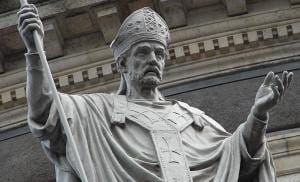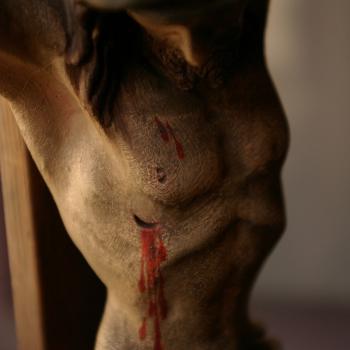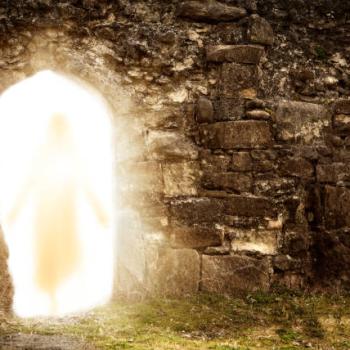
St. John Chrysostom, the “Golden Mouth,” has September 13 for his feast day. Famous for his eloquence and two-hour sermons, he is the patron saint of preachers. I can’t help smiling at the following bit of irony. On the very feast of this master of words, looking through the day’s mail, I turned a sheet over and came to these utterly useless words: “This page intentionally left blank.”
Have you noticed that whenever you read, “This page intentionally left blank,” the page isn’t actually blank? If it were blank, intentionally or not, it wouldn’t have any words on it. Then I would be able to use it. For most of my purposes, a sheet of paper with one blank side is still exactly half as valuable as a sheet with two blank sides. But not if that “blank” page has five words in large print. When did it become important to tell people that a blank page is a blank page? I never before wondered if that blank page could be an accident. I just felt relief that there were that many fewer words to decide about whether I needed to read them.
When I opened the mail on Friday the 13th, I thought of all the superfluous words that came that day, in addition to the ones about the intentionally blank page. I thought of all the trees the paper that held those words represented. I thought back about at least 50 years to a time when everybody thought we had to do something about junk mail or there’d soon be no trees left. And I realized I now discard into the recycling bin more paper than ever. That’s even while going “paperless” where I can.
John Chrysostom
Finally I thought about St. John Chrysostom and his two hour sermons. That was a lot of words. But whereas I throw into the recycling bin the vast majority of the words I receive in the mail, that didn’t happen with a Chrysostom sermon. People didn’t forget what he said; most loved his sermons. But the high and mighty, whether imperial or ecclesiastical, didn’t take lightly or kindly to what they remembered.
Chrysostom offended these well-healed folks by his modest lifestyle, by deposing bishops who had bribed their way into office, and by assailing the consciences of the rich in his sermons. They would have heard, for example:
- About the necessity to share wealth with the poor,
- That property existed only because of Adam and Eve’s fall from grace,
- That men had to be faithful in marriage, the same as women.
Eloquence and popularity with the common people got Chrysostom in trouble with imperial and ecclesiastical authorities. He was forced to abandon his diocese’s titular city, Constantinople, and died in exile in the year 407. He was about age 58.
St. John Chrysostom, pray to save us from superfluous words and for words of wisdom and praise.












